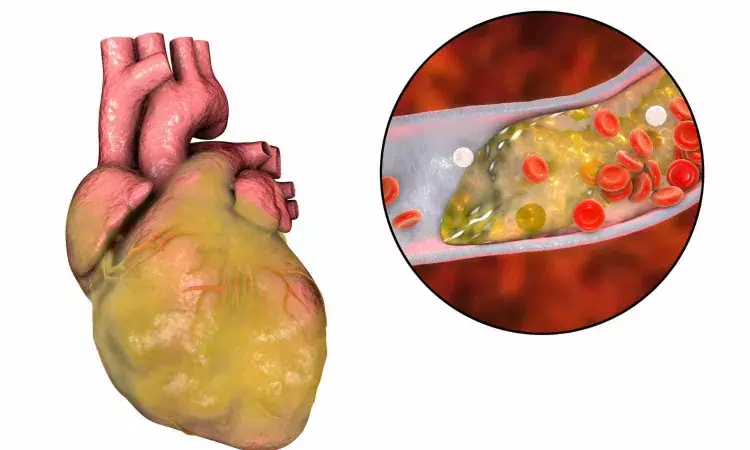- Home
- Medical news & Guidelines
- Anesthesiology
- Cardiology and CTVS
- Critical Care
- Dentistry
- Dermatology
- Diabetes and Endocrinology
- ENT
- Gastroenterology
- Medicine
- Nephrology
- Neurology
- Obstretics-Gynaecology
- Oncology
- Ophthalmology
- Orthopaedics
- Pediatrics-Neonatology
- Psychiatry
- Pulmonology
- Radiology
- Surgery
- Urology
- Laboratory Medicine
- Diet
- Nursing
- Paramedical
- Physiotherapy
- Health news
- Fact Check
- Bone Health Fact Check
- Brain Health Fact Check
- Cancer Related Fact Check
- Child Care Fact Check
- Dental and oral health fact check
- Diabetes and metabolic health fact check
- Diet and Nutrition Fact Check
- Eye and ENT Care Fact Check
- Fitness fact check
- Gut health fact check
- Heart health fact check
- Kidney health fact check
- Medical education fact check
- Men's health fact check
- Respiratory fact check
- Skin and hair care fact check
- Vaccine and Immunization fact check
- Women's health fact check
- AYUSH
- State News
- Andaman and Nicobar Islands
- Andhra Pradesh
- Arunachal Pradesh
- Assam
- Bihar
- Chandigarh
- Chattisgarh
- Dadra and Nagar Haveli
- Daman and Diu
- Delhi
- Goa
- Gujarat
- Haryana
- Himachal Pradesh
- Jammu & Kashmir
- Jharkhand
- Karnataka
- Kerala
- Ladakh
- Lakshadweep
- Madhya Pradesh
- Maharashtra
- Manipur
- Meghalaya
- Mizoram
- Nagaland
- Odisha
- Puducherry
- Punjab
- Rajasthan
- Sikkim
- Tamil Nadu
- Telangana
- Tripura
- Uttar Pradesh
- Uttrakhand
- West Bengal
- Medical Education
- Industry
Vericiguat safe drug for use in patients with coronary artery disease, finds research

Researchers have identified that vericiguat, a new drug for heart failure, is safe in patients with coronary artery disease. A recent study showed that vericiguat is not associated with major serious adverse events despite mild alterations in blood pressure and heart rate. This study was conducted by Bin Zarti and colleagues published in the American Journal of Cardiovascular Drugs.
The study reviewed the data from three randomized controlled trials involving 151 patients on the safety profile of vericiguat versus a placebo. Clinical outcomes and adverse events were stringently analyzed to provide valuable insights in its application in cardiovascular care. The meta-analysis covered a detailed search of three major databases: PubMed, ClinicalTrials.gov, and the Cochrane Library, until March 27, 2024. Only studies that compared vericiguat with a placebo in patients diagnosed with coronary artery disease were included.
Quality assessment of the enrolled studies was performed on each, and clinical information for analysis was extracted from these studies. Statistical methods to analyze the studies conducted in this review include measures like ORs and CIs; Review Manager software version 5.4 was used in that regard. Parameters scrutinized include blood pressure, heart rate, and adverse events.
Main Results
Blood Pressure and Heart Rate
• The systolic blood pressure decreased by 1.4-10 mmHg and diastolic blood pressure by 0.4-6 mmHg; both the changes were clinically insignificant.
• Heart rate increased by 1.8-7 bpm, which was also of clinical insignificance.
Adverse Events
• No serious adverse events were reported significantly with the use of vericiguat in comparison with the placebo (OR = 1.97; 95% CI = 0.39-9.91; p= 0.41).
• There was a greater overall adverse events rate between vericiguat and the placebo group (OR = 4.04; 95% CI = 2.17 - 7.52; p< 0.001).
Clinical Trials and Population
• Analysis involved all three randomized controlled trials with an enrollment of 151 patients.
• Therefore, minor adverse effects notwithstanding, vericiguat appears to still be safe in managing coronary artery disease.
This meta-analysis therefore shows that vericiguat is safe for the use of patients with coronary artery disease as it is free from a significant risk of serious adverse events. The minor adverse events were, however, more frequent in the vericiguat arm, and the clinical significance remains low. More clinical studies are required to confirm these results and make vericiguat a first-line therapy in cardiovascular practice.
Reference:
Bin Zarti, M., & Tamgheli, A. (2024). Safety of vericiguat in patients with coronary artery disease: A systematic review and meta-analysis. American Journal of Cardiovascular Drugs: Drugs, Devices, and Other Interventions.https://doi.org/10.1007/s40256-024-00701-0
Dr Riya Dave has completed dentistry from Gujarat University in 2022. She is a dentist and accomplished medical and scientific writer known for her commitment to bridging the gap between clinical expertise and accessible healthcare information. She has been actively involved in writing blogs related to health and wellness.
Dr Kamal Kant Kohli-MBBS, DTCD- a chest specialist with more than 30 years of practice and a flair for writing clinical articles, Dr Kamal Kant Kohli joined Medical Dialogues as a Chief Editor of Medical News. Besides writing articles, as an editor, he proofreads and verifies all the medical content published on Medical Dialogues including those coming from journals, studies,medical conferences,guidelines etc. Email: drkohli@medicaldialogues.in. Contact no. 011-43720751


